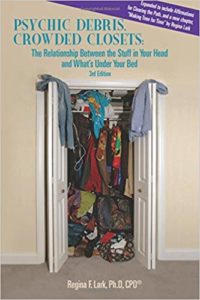 Moving is always a stressful endeavor no matter how old you are, and it gets even tougher with years of memories and possessions accumulated in the home. Statistics from the National Council on Aging indicate that more than half of seniors say that the hassle of moving is the primary reason why they prefer to age in their current homes.
Moving is always a stressful endeavor no matter how old you are, and it gets even tougher with years of memories and possessions accumulated in the home. Statistics from the National Council on Aging indicate that more than half of seniors say that the hassle of moving is the primary reason why they prefer to age in their current homes.
Senior moving management can help relieve this burden by helping the elderly downsize and transition smoothly to assisted living communities or other alternative housing programs. Whether your elderly parent has passed on or is experiencing a deterioration in mobility and cognitive ability that requires additional care in an assisted living facility, a senior moving manager can help you through this challenging transition.
Why Hire a Senior Move manager
For many seniors, the onset of mobility issues could be something sudden, such as a slip and fall, or a culmination of years of illness or self-neglect. In either case, your aging parent may not take care of their belongings, and the responsibility now falls to you.
And, since there is nothing much you can do to reverse the situation, you must focus on managing the family dynamics and emotions, especially from siblings, grandchildren, and other relatives. Dealing with this process often feels like a full-time job, and trying to handle it on your own can easily weigh you down.
Fortunately, a professional move manager can save you time and mental or emotional stress by handling this additional project on your behalf. So, here are the 7 reasons you should hire a senior move manager:
1. They Make Seniors Feel in Charge of Hard Transitions
It’s critical to involve seniors in the moving process, so they don’t feel pushed out of their homes. This may mean allowing them to organize books or clothing or sorting through a box of gift ornaments — it all depends on the physical and cognitive condition of the senior.
If your aging parent is able to make some decisions, they will more likely feel comfortable with the move. More often, the need to move homes for seniors is often triggered by a change in health or loss of a spouse. In such situations, they may not necessarily be in the right frame of mind to take total control.
An impartial third party can help you bring order to the moving process, reducing stress for you and your aging parent. As a result, you can focus on the more important physical and emotional needs of the senior.
2. Emotionally Prepare Seniors for Assisted Living
One of the biggest hindrances to seniors transitioning to assisted living facilities is the strong desire to age at home, surrounded with familiar possessions and memories. A senior move manager can listen to the concerns of your aging parent and offer acceptable solutions based on their experience.
Senior move managers can help reduce the fear of downsizing and make a seemingly overwhelming process less daunting. Once the senior accept the decision to move to assisted living, a move manager will handle the physical aspect of moving, ensuring that the process smooth and hassle-free.
3. Prevent Family Conflict
The stress associated with moving, coupled with conflicting personalities, can raise arguments among your siblings. A senior move manager will help de-escalate the situation by addressing the concerns of different family members to ensure that the move is smooth and free of family conflicts.
With their experience, move managers can provide an objective perspective and guide your family through the process of deciding which items to keep, donate, or sell.
 4. Experience and Certification
4. Experience and Certification
Professional senior move managers are required to carry general liability insurance, acquire training in ethics and safety, and provide a written contract to protect the family, their senior loved one, and the move manager. There is also a code of ethics and standard of practice that all move managers must follow.
Moreover, many move managers are professionals with backgrounds in nursing, psychology, and social work. Their combination of professional backgrounds, life experiences, and desire to connect with seniors uniquely prepares them for this unique role.
5. Help Seniors Downsize with Dignity
Many seniors have lived in one home for their entire adult life, and probably filled it with reminders of people and places they adore. A senior move manager has the training and experience to help seniors move with their possessions without taking along the memories.
More often, younger generations fail to understand the emotional difficulties of downsizing, a disconnect that can leave adult children frustrated by their aging parents’ reluctance to let go. Senior move managers experience such situations every time, and they can better empathize with seniors struggling with downsizing. They’re able to suggest creative solutions you may not have thought of.
6. Save Time and Money
If your family members live in different geographical regions, a move manager can save you considerable time and resources. Instead of all family members making multiple flights to organize possessions, move, and organize estate sales, the mover will manage many of these tasks.
With advancements in technology, most downsizing and selling tasks can be done virtually. Dependable move managers today use technology to manage inventory, sell possessions online, and locate proper storage for your senior’s remaining stuff.
Most managers also have valuable networks of real estate agents, appraisers, cleaning services, and staging experts to take care of every detail for your family.
7. Support a Senior’s Move Regardless of the Distance
Sometimes, a senior move manager will pack and ship hundreds of items to your preferred location. Other times, they’ll take care of the transportation and accompany your loved one across the country.
No matter how involved your move manager is, the process of downsizing and moving usually creates a personal relationship. Many established senior move managers continue speaking with their clients long after the move is completed to ensure they are comfortable in their new environment.
A Clear Path Can Help!
Are you planning to move your aging parent to an assisted living facility? A Clear Path can help you navigate the hurdles and make the transition smooth and comfortable for both of you. We take full responsibility for sorting, organizing, cleaning, disposing of, moving, and selling all the property in your parent’s home.
It’s a one-call process. Once you make a call to A Clear Path, our experienced team takes charge and can manage every step along the way. If you need to dispose of the old home, A Clear Plan offers services to address trash, e-waste, shredding, and even toxic waste. For more valuable items, we can organize an auction or an estate sale.
Thanks to our complete line of services, we can help alleviate the stress associated with this sensitive transition. In addition to the tactical help, we can also become an impartial third party to help you address family conflicts over every belonging. Contact us today for more information about senior move management and how we can help you keep your aging parent happy throughout the moving process.



 home is overstuffed and overflowing with household possessions, a moving company will help you declutter and ready it for staging.
home is overstuffed and overflowing with household possessions, a moving company will help you declutter and ready it for staging.



 A senior move manager is involved in unpacking your items. The manager will ensure all possessions are moved to the appropriate rooms and quickly unpack items you need immediately, such as crucial documents and medications. The manager will also arrange all items to optimize storage.
A senior move manager is involved in unpacking your items. The manager will ensure all possessions are moved to the appropriate rooms and quickly unpack items you need immediately, such as crucial documents and medications. The manager will also arrange all items to optimize storage. The multi-bedroom family home boomers have been holding onto for decades now seems empty and quiet, and some boomers have felt the effects of loneliness as the kids begin to leave the nest.
The multi-bedroom family home boomers have been holding onto for decades now seems empty and quiet, and some boomers have felt the effects of loneliness as the kids begin to leave the nest.
 A good rule of thumb is to prepare for a move in advance and not wait until the 11th hour to start
A good rule of thumb is to prepare for a move in advance and not wait until the 11th hour to start  not fetch much at a yard sale should also be donated where they will be more helpful, like at a children’s camp.
not fetch much at a yard sale should also be donated where they will be more helpful, like at a children’s camp. 



 Start preparing for your move in advance, perhaps even months ahead of time. If you know you want to downsize, begin working on the following now. Doing so will help you tremendously when the time comes to start packing.
Start preparing for your move in advance, perhaps even months ahead of time. If you know you want to downsize, begin working on the following now. Doing so will help you tremendously when the time comes to start packing. Group your items by room, not by type. For instance, if you’ve visualized a small library in your living room, but you also have some books you like to keep close to your bed, then don’t be afraid to separate those. The same goes for everything else — from pillows to artwork.
Group your items by room, not by type. For instance, if you’ve visualized a small library in your living room, but you also have some books you like to keep close to your bed, then don’t be afraid to separate those. The same goes for everything else — from pillows to artwork.